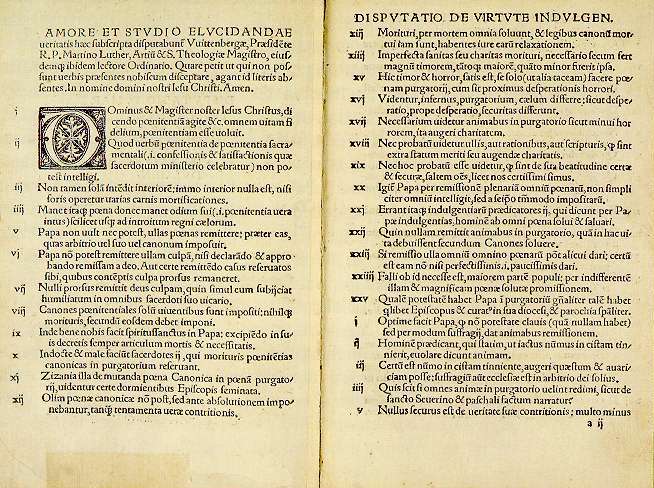October 31st is a holiday in Germany, but people won’t be knocking at neighbor’s doors asking for candy. While Americans celebrate Halloween, people in Germany commemorate Martin Luther (1483 - 1546).
 On October 31, 1517 the theologian Martin Luther supposedly nailed a pamphlet with 95 Thesen, or criticisms, to the door of the church in his hometown Wittenberg.
On October 31, 1517 the theologian Martin Luther supposedly nailed a pamphlet with 95 Thesen, or criticisms, to the door of the church in his hometown Wittenberg.
Luther mainly took issue with the practice of penance for sin, which essentially made it possible to buy absolution with the purchase of Ablasszettel (indulgences) rather than true and lifelong penance and reform.
His 95 Thesen were supposed to spark an open discussion among theologians, yet they spread so quickly among the population that Rome felt compelled to accuse Luther of heresy.
Luther became an outlaw when he refused to renounce his criticism, and had to go into hiding in Eisenach. There he translated the bible from Latin into German, which didn’t go over too well with Rome, either.
However, his translation quickly became popular, because now regular folks could read the bible, too. Martin Luther is not only the theologian responsible for the split between Lutherans and Roman Catholics, but also the man whose version of German unified the countless German dialects. Without Luther, there might not be a standard version of German today.
